Do you want heart disease?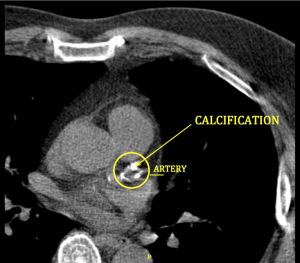
Calcium supplements for heart disease? Well, if you want to increase your risk of getting heart disease, you can take Calcium (Ca) supplements! Perhaps you would like to contract type 2 diabetes or be more at risk of having a stroke. How about kidney stones, do you fancy them. Take it from me, they are excruciatingly painful!
Am I being flippant?
You may think I’m being frivolous here, but I want you to take heed because many of us are taking extra Ca by way of supplements, despite getting plenty of it through our diet. For those of you who eat a ‘normal’ diet which includes dairy, yoghurt, milk products, cheese, butter etc., please read this post and take action for your own health and the health of your loved ones.
Take Action!
Take action now for your future well-being and a better chance of living a long and healthy life. Too much Calcium (Ca) by way of supplementation can increase the risk of you succumbing to heart disease, especially if you’re a woman. It has also been linked to other serious diseases. This is a fact that has been proven by research, but this is only half the story!
Is Calcium a Villain?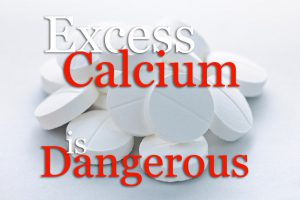
No, definitely not. We must get away from blaming Ca for the incidence of heart disease and other serious conditions. Researchers cannot simply blame Ca supplementation for their findings, the problem is of an imbalance between Ca and Magnesium (Mg).
Why is this not known?
The simple fact is that most doctors just don’t seem to have taken this fact on board and used it to the best advantage of their patients. It also seems to have eluded most researchers to such an extent that I actually did a search for the words Calcium and Magnesium in a significant peer reviewed paper called ‘Calcium supplements and cardiovascular risk: 5 years on’(1).
Mg not mentioned once!
There were 151 finds for the word Calcium. Guess what, there was NOT ONE SINGLE ENTRY for Magnesium within this peer reviewed paper. The only incidence that came up for the search was just one within a reference title at the bottom.
Here is this paper, researching the risks of heart disease because of excess Ca and there’s not a single mention whatsoever about the incredible importance of the balance between Ca and Mg and how an imbalance is the problem rather than just Ca itself.
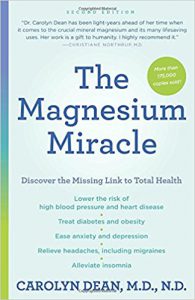 Magnesium and enzymes
Magnesium and enzymes
This I find unbelievable and extremely frustrating. The medical profession should know that Mg is necessary for hundreds of enzymatic processes. According to Dr Carolyn Dean’s book ‘The Magnesium Miracle’ she writes:
Magnesium is a required cofactor for the activity of hundreds of enzymes. I quoted the standard number of 325 enzymes when I wrote the first edition of The Magnesium Miracle. However, the number 325 is far too low. Dr Rosenoff says “While it was estimated in 1968 that magnesium was a required cofactor for over 300 enzyme systems, that number is now more reliably estimated at 700-800” (2)
No wonder there is such a range of conditions and diseases that will be a direct result of a Mg deficiency.
Do you have lactose intolerance?
For those of you who may have an allergy or if you do not eat dairy products or foods rich in Ca, then you may have to take different action. Supplementation may be necessary if your dietary intake of Ca is low. All you have to do is make sure your intake of Ca and Mg ratio is 1:1. That’s it, simple. It’s not rocket science, just a case of balance.
 Fortification of Calcium
Fortification of Calcium
On the whole, most people get plenty of Ca from their diet, especially as the food manufacturers have taken it upon themselves to fortify any food they can with extra Ca. They then advertise to the poor unsuspecting and trusting public who buy their food because it has extra Ca in it. After all, the food companies’ advertisements tell you it’s good for you, so it must be true! This means that the majority of us are already saturated with Ca.
What about Magnesium?
So how many of us have enough Mg? It is estimated that a whopping 80% of Americans are Mg deficient. There is no reason to suppose that this figure will be any different for the population of the world who eat a ‘western’ diet and use fertilisers and pesticides to deplete the land of it’s natural minerals and nutrients.
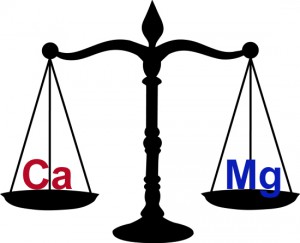 The correlation between these two vital minerals, Ca and Mg, is so important that I wanted you to understand the serious significance of an imbalance between them. The imbalance is invariably too much Ca and not enough Mg. It is nearly always Ca that is in abundance in comparison to very little Mg. Ca without Mg can have devastating affects on your health.
The correlation between these two vital minerals, Ca and Mg, is so important that I wanted you to understand the serious significance of an imbalance between them. The imbalance is invariably too much Ca and not enough Mg. It is nearly always Ca that is in abundance in comparison to very little Mg. Ca without Mg can have devastating affects on your health.
The ‘in vogue’ mineral
Our Ca rich diets provide us with a plentiful supply of this necessary mineral. The problem is, Ca has become the ‘in vogue’ supplement to take. We’re told you need Ca supplements for your bones and teeth, for your arthritis, for your osteoporosis. Children must have extra Ca to make sure they grow up big and strong. Ca here, Ca there, Ca everywhere.
A Mg deficiency by default!
Because of this, Ca supplements are being taken like candy, producing a dangerous ratio of too much Ca to Mg in our diet today. This imbalance, by default, causes a Mg deficiency. It is also making bones and teeth weaker, not stronger and arthritis worse, not better, not to mention osteoporosis! What about heart health?
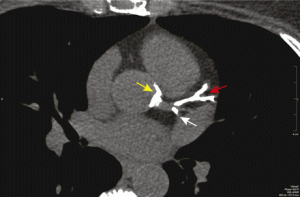 Too much Calcium will cause calcification
Too much Calcium will cause calcification
There is no doubt that Mg deficiency is an epidemic in these modern times and it is this deficiency which makes Ca a problem. If Ca and Mg are in the body in equal proportions then Ca will do what it’s supposed to do. If Mg is not in sufficient quantities to control Ca then problems and symptoms of serious diseases can occur and Ca will start migrating and calcifying into different parts of the body. Our most important organ is at serious risk with an excess of Ca. Note this coronary calcium scan (CCS)
Mg is a gatekeeper to our cells
Mg is Ca’s gatekeeper, controlling where and how much it lets into our cells. It also keeps Ca dissolved in the blood and inhibits its calcification. This keeps Ca from creating kidney stones. It also inhibits calcification within our arteries reducing the incidence of atherosclerosis and other plaque buildup. It stops calcification of the bladder which reduces its capacity to store urine, hence more trips to the loo. Calcification in breast tissue can also be a problem and misdiagnosed as cancer. Calcification can be anywhere which includes our joints and muscles. By far the worst problem though, is heart disease and its associated conditions like high blood pressure, angina, strokes, atherosclerosis etc..
What is the most important function of Mg?
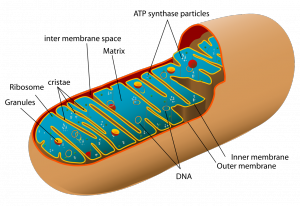
Probably the most important function of Mg is that it is needed in 6 of the 8 stages (the Krebs cycle) of producing our energy storage molecule adenosine triphosphate (ATP). This is our source of energy created in the mitochondria, which reside in each of our 37.2 trillion cells. For ATP to become active, it must be bound to a Mg ion (Mg-ATP). Too little Mg can cause an excess of Ca within the mitochondria and this can inhibit ATP synthesis.
Without Mg, Ca floods the cell
There are numerous mitochondria in each cell, the most being produced in muscle cells which need an abundance of energy to work efficiently. Without the intervention of sufficient Mg, mitochrondrial calcification will eventually cause cells to die.
Without Mg there is no energy, without energy there’s no movement, without movement there’s no life.
 Please leave a comment if you have any experiences or thoughts about this post. I will answer any questions you have as best I can. Thank you for reading.
Please leave a comment if you have any experiences or thoughts about this post. I will answer any questions you have as best I can. Thank you for reading.
(1) Bolland MJ et al., “Calcium supplements and cardiovascular risk: 5 years on.” Ther Adv Drug Saf vol.4, no. 5, pp. 199-210, 2013.(2) Andrea Rosenoff, www.prohealth.com/library/print.cfm?libid=14606
Spread the word!
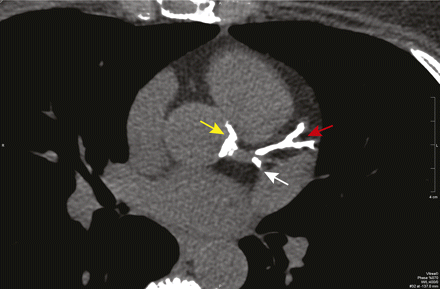
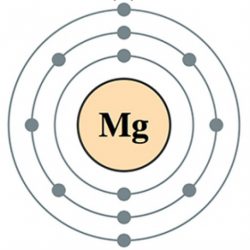
As a health and wellness coaches your review is great on calcium and magnesium. Personally i have taken for few years of calcium but recently I realize that calcium and magnesium is needed together.
Thanks for the informative article. I enjoy reading your article a lot by gaining extra knowledge.
Hi Paul and thanks for your input. Yes, we all need to watch our Ca intake because it is so easy, with our modern diet, to overdo the Ca to the detriment of our body’s Mg levels. I’m pleased you’re finding the information on the site useful.
Hello, Chessie…Thank you for writing this very interesting and informative article about calcium supplements. I’ve taken them for years thinking I was doing the best for my bones and following daily “recommendations”. I know now after reading this article that I’m getting enough calcium in my diet so will stop taking this vitamin.
Twice I’ve had to have breast biopsies due to possible cancer cells but it was determined to be calcification. No questions were asked about calcium supplements and a possible connection.
Hello Karen and thanks for reading the article. Your experience with breast biopsies is very common. Problem is, some women have been known to be treated for breast cancer when in fact it has just been macro calcifications, which need no treatment. Tight groups of micro calcifications need to be looked at more carefully but even so, most are nothing to worry about, with no treatment necessary. The best way to reduce calcifications in your body is to start taking vitamin K2 MK7 along with your Magnesium and also vitamin D3 if you don’t live in sunny climes. If you are fortunate enough to have sunny days most if the year, just going out and baring your skin for 10-15 minutes a day (no suncream) when the sun is high, will keep your vitamin D3 levels up. Don’t forget, vitamin D is stored in the body and needs to be activated by Mg. If you are Mg deficient, your vitamin D will not be utilized. So, before supplementing with D3, first make sure your Mg is replete. Excessive amounts of vitamin D3 supplement can have an adverse effect regarding calcification.
What a great read! I have heard that most people are deficient in magnesium. I used to take calcium supplements but have stopped. That is crazy to think of the problems that could come up with getting too much. It all goes back to eating the right foods to naturally get our vitamins and minerals the natural way. Is there a brand of magnesium you recommend?
Hi Shannon and thanks for reading the post. I’m pleased you’ve stopped taking Calcium (Ca) supplements and agree with you about getting everything from the food we eat, that is, as long as the food we eat has a good amount of the nutrients we need. Unfortunately, in this modern society, are agricultural practices have diminished much of our nutrition because of our over fertilised and pest controlled soils. You will get enough Ca from your food as long as you’re not lactose intolerant, then you would have to check how much Ca you get from non dairy foods. Even so, Mg must be in your body in as near to equal quantities as you can attain. That usually means a Mg supplement is necessary. Dr Carolyn Dean does a good quality Mg Chloride supplement called ReMag but it is expensive. A link to less expensive alternative can be found at Best Magnesium Supplements The Mg citrate powder is a good supplement if you need a gentle laxative effect. Otherwise Mg Chloride is the one to choose for a non laxative effect up to a dose of around 600mg of elemental per day. Everyone is different but I personally prefer the Mg Chloride because of its bioavailability which is very high. Don’t go for Mg oxide, only a maximum of 4% is bio available, the rest will go straight through you, good as a laxative.
Good health to you, Ches Power
Hi Ches, thank you for that information and opening up a can of worms about calcium and magnesium, I was fully aware of calcium and taking too much giving its risk to heart disease, dairy products was and still is down to a minimum but like anything else, it,s always in moderation. interesting article and again thank you for highlighting it and giving me the education.
Hi Michael and thanks for reading the somewhat long post. Being aware, as you obviously are, is half the battle. You know what to do and that is gratifying to me. Spread the word with your family and friends! Good health to you always, Ches Power
Oh!!! It’s a slap in my face, Eureka! My father was taken to the hospital last week with heart disease, he nearly died.
Since the day was brought in I’m trying to find some explanation for the situation. My father just turned 61, is very healthy. He doesn’t smoke, eating good things and quite active. But! The golden rule of his life is that you never can eat enough Ca (and we’ve learned the same from him). We eat A LOT OF dairy and (!) take a big amount of supplements, pure Ca tablets as well. He always says that supplements are a beautiful invention because the provide nutrients we wouldn’t be able to consume otherwise or not enough.
Can you imagine that the excessive Ca intake caused his condition?
Kind regards,
Adam
Oh Adam, I’m so sorry to hear of your Dad’s heart disease. I sincerely hope he is recovering well. There’s a good chance he many have been given Intravenous Mg to try to stabilise his heart. This is a common treatment in some hospitals receiving emergency patients with heart attack. there is a myriad of info on this, here’s one I found putting in the search ‘IV magnesium for heart attack’ you may like to look for yourself.
Please stop taking Calcium supplements immediately and make sure your Dad does too. Try and persuade him to start taking a Magnesium supplement. Try and reduce his Ca intake to no more than 1000mg a day and his Mg intake including food as close to his Ca intake as possible. I know this isn’t easy as Ca is everywhere and fortified in loads of food. A good quality Mg is ReMag which is produced by Dr Carolyn Dean, a real expert in Mg. She has written a book, you can find the link to it here If your doctor knows little about Mg supplements or tries to deter you from taking Mg, please do your own research and know that most doctors are not au fait with supplements and nutrition. Unfortunately the majority of drugs given to patients will actually further deplete Mg levels and no doubt your Dad will be put on prescription drugs for his condition. Anyone under stress will have their Mg levels depleted more rapidly so being replete in this mineral is vital.
I have a page which describes all the supplements available at Best Magnesium Supplements
Good luck to you and your family and please do research for yourself and you will see why Mg is so vital for you and your loved ones. Ches Power
I have never heard of Calcium and Magnesium ever having to do with each other. It does make sense that they are similar because of their location on the periodic table. What types of foods are there for each type specifically? I know you mentioned dairy for calcium, but I may have missed the magnesium fortified foods. I think it would be a good idea to put a couple lists together so that people know how easy it is to keep up with these vitamins without supplements.
Hi Bret and thanks for reading the post. I think most people haven’t heard of this correlation between these 2 alkaline metals and their location on the periodic table is indeed no accident. Calcium is in many foods but there is an abundance in dairy products. As for Magnesium, the highest value is in kelp or seaweed which is not very appealing to most people. Nuts and seeds are full of many nutrients including Mg because they are the start of new life and new life needs all the nutrients to get it going, much like eggs which are similarly rich in most nutrients. I have a list of Mg rich foods here Foods With High Magnesium As for Ca, unless you’re lactose intolerant, there’s not much chance of you being deficient of it, especially with all the fortification in our foods. Magnesium is very rarely fortified by the food manufacturers. Good health to you. Ches Power
Oh my goodness, I’m overwhelmed! Where do I even begin? I was not aware that too much calcium can cause heart disease, although I’m pretty sure I don’t get too much of it. I’m vegetarian, although a large percentage of my meals are vegan. I’m lactose intolerant so I don’t eat tons of cheese, although it doesn’t stop me because of the wonder of lactose pills. I’ve always read that when taking calcium supplements you should love for calcium magnesium 2:1. What’s the best thing to do? Blood tests to determine what we have an excess/deficiency in?
Hi Hindy, The 2:1 business was mis-intepreted back in 1989 when a researching doctor suggested that the minimum ratio should be 2:1 Ca to Mg. This was mistakenly taken to be the optimum ratio which is actually 1:1. Even so, it is very difficult to attain that elusive 1:1 ratio because there’s so much Calcium around without the Mg to back it up. Funny, this is the second lactose intolerant person who has commented on this post, how strange is that! If you do ask for a blood test, you will be offered a serum test which is next to useless because serum at any one time only has about 1% of the total Mg that’s in the body and this amount is kept steady at the expense of the Mg in the rest of the body. This means, even if you’re Mg deficient, it won’t show up unless you’re drastically deficient and then the figures will only move a little. The better but not ideal test is the RBC test but this would probably have to done privately because most doctor’s surgeries don’t do this test, they prefer the antiquated serum test! If you do have an rbc test, a pound to a penny, you will show low Mg rather than low Ca. It is the ratio that is most important though, so do a check on you Ca intake and then compare it to your Mg intake. You’ll be surprised. Just as an example, I checked how much milk I had in any one day. I’m a tea addict and drink many cups using about 500ml of skimmed milk per day. That amounts to a whopping 610mg of Ca just from my milk intake. Even though you are lactose intolerant, many foods have Ca within them and many foods are fortified. Not so Mg and that’s the problem. Probably though, your Ca to Mg ratio is going to be lower than the general population who consume dairy products regularly. Good health to you and thanks for the comment. Ches Power
Really interesting article. You are right – in vogue supplements exist. The general public hear a lot about calcium and vitamin C, but what about the other, equally important vitamins and minerals.
More responsible reporting is required to point out the other necessities in our diet.
Frightening to see how much calcium is added to everyday foods, then we unwittingly take supplements, thinking that we aren’t getting enough from our diet and the dangers of taking in too much calcium are real, and well explained in your article.
As someone who is lactose intolerant, thank you for a special mention to our condition – so often forgotten!
Thank you Janet for reading the post. Being lactose intolerant must be a pain in the butt, there’s so much food that you can’t eat. It’s still a good idea though, to check out exactly how much Ca you ingest on a daily basis. It’s surprising that it’s in so many varieties of food apart from dairy. By contrast Mg is not in so many foods and is mostly overlooked when it comes to fortifying by food manufacturers. I suspect even without eating dairy, your Ca intake is still more than your Mg. Good health to you always, Ches Power